
 Mrs. Mayuri Mathur
Mrs. Mayuri Mathur
How to Improve Liver Health with Lifestyle Changes
The liver is one of the essential organs in the body, responsible for numerous vital functions, including detoxification, metabolism, and storage of nutrients. It filters the blood and maintains chemical balance in the body. However, poor lifestyle choices, such as a high-fat diet, excessive alcohol consumption, and a sedentary lifestyle, can cause damage to the liver, leading to a range of health problems. Fat deposition in the liver can impact its functioning and lead to two main liver diseases:
• Non-alcoholic fatty liver disease (NAFLD)
• Non-alcoholic steatohepatitis (NASH)
NAFLD is a condition arising from excess liver fat but causes no damage. On the other hand, NASH is characterized by inflammation and cell damage, leading to permanent scarring and loss of function. If left untreated, these conditions can progress to cirrhosis. Making lifestyle changes can play a crucial role in improving your liver health.
Strategies to Improve Liver Health
Losing weight is one of the most effective ways to improve liver health. Excess weight, especially around the midsection, increases the likelihood of having fat in the liver. Losing weight through healthy means can help reduce fat content in the liver. It would be best to avoid crash diets, as they can harm the liver. It is also essential to exercise caution while consuming weight loss pills and fad diets, as they can damage the liver.
Eating a healthy diet is also crucial. Consuming fruits, vegetables, lean meats, whole grains and drinking plenty of water can improve liver health. You must also limit the intake of saturated and trans fats and replace them with healthy monounsaturated and polyunsaturated fats found in sources such as olive and vegetable oils, nuts and seeds, fish, and avocado. Liver cleansing and detox diets are not scientifically proven, and it is recommended to consult a doctor or dietitian before initiating them.
Stopping alcohol consumption can help the liver heal within days or weeks. Excessive alcohol consumption is a leading cause of liver disease and can cause irreversible damage to the liver over time. Alcohol damages the liver's enzymes leading to permanent damage and cirrhosis. To protect your liver, limit alcohol consumption to no more than one drink per day for women and two drinks per day for men.
Exercise is another excellent way to improve your liver health. Regular exercise can help improve liver health by reducing fat accumulation in the liver, improving insulin sensitivity, and reducing inflammation. It also helps burn calories and stored fat, leading to weight loss. Aim to be active for at least 30 minutes daily, gradually building endurance over time.
Manage underlying health conditions and monitor your vital parameters. Certain health conditions, such as diabetes, high cholesterol, and high blood pressure, can increase the risk of liver disease. To improve liver health, it is essential to manage these conditions through a healthy diet, exercise, and medication if necessary.
Avoiding exposure to toxins from cleaning and aerosol products, insecticides, chemicals, and additives is also essential. When using aerosols, ensure the room is well-ventilated, and wear a mask. Avoid smoking, illicit drugs, and contaminated needles. In case of exposure to blood, seek medical care immediately. Also, don't share Personal hygiene items like razors, toothbrushes, and nail clippers.
Quitting smoking can help improve liver health and reduce the risk of other health problems. Smoking is a significant risk factor for several liver diseases, including non-alcoholic fatty liver disease (NAFLD), liver cancer, and cirrhosis. The chemicals in tobacco smoke can cause oxidative stress, inflammation, and damage to liver cells, ultimately leading to liver disease. Smoking is also a major risk factor for liver cancer, one of the most deadly forms of cancer.
Hygiene is an important parameter in liver health. Washing hands with soap and warm water after using the bathroom, changing diapers, and before eating or preparing food is essential. Practicing safe sex can reduce the risk of hepatitis B and hepatitis C.
Take medicines judiciously. Taking medications as prescribed, avoiding mixing medicines, and never combining alcohol with drugs can prevent liver damage. Use Over-the-counter medication, supplements, and herbal remedies only after consulting a doctor. If you experience tiredness, nausea, itching, or jaundice after taking a new medicine, speak to your doctor, as other medications can also cause liver damage.
Use health supplements under apt guidance. Avoid supplements with pyrrolizidine alkaloids like borage, comfrey, groom well, and coltsfoot, as they can damage the tiny blood vessels in your liver. Herbs like Atractylisgummifera, celandine, chaparral, germander, and pennyroyal oil can also cause liver problems.
Vaccination is the best way to prevent liver diseases. Get vaccinated for hepatitis A and B; unfortunately, there is no vaccine for hepatitis C. However, it is recommended to get tested for hepatitis C, which can infect the liver directly and cause severe damage over time.
Making these lifestyle changes will help keep your liver in good health in the long run and bypass any damage to your liver in the future.
The bottom line
Maintaining a healthy lifestyle is crucial for improving liver health. Making dietary changes, avoiding alcohol, exercising regularly, managing other health conditions, and avoiding exposure to toxins and infections can prevent liver damage. Seeking medical care and consulting a doctor or dietitian is essential when considering weight loss pills and fad diets. By taking these measures, you can reduce the risk of liver diseases and improve your overall health.

Mrs. Mayuri Mathur
Mrs. Mayuri Mathur is a Senior Medical Writer (Patient education and digital) and seasoned content creator with a rich tapestry of expertise spanning over ten years. With a diverse background in content creation, she brings a wealth of experience to the table, from crafting insightful medical articles to developing comprehensive patient education materials, dynamic press releases, and captivating brochures and website content. Throughout her illustrious career, she has demonstrated an exceptional knack for distilling complex medical concepts into easily understandable content, making her a trusted resource for both professionals and lay audiences alike. Her meticulous attention to detail and innate creativity have enabled her to deliver content that not only informs but also engages and inspires. Whether elucidating intricate medical procedures or crafting compelling marketing materials, her versatility and dedication shine through in every project she undertakes. Her passion for writing, coupled with her profound understanding, makes her an invaluable asset to any team or project. In a constantly evolving digital landscape, where effective communication is paramount, Mrs. Mayuri Mathur stands out as a beacon of excellence, consistently delivering top-notch content that resonates with audiences across diverse platforms.






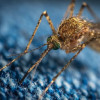
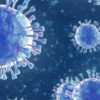
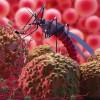
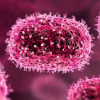
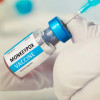

Please login to comment on this article